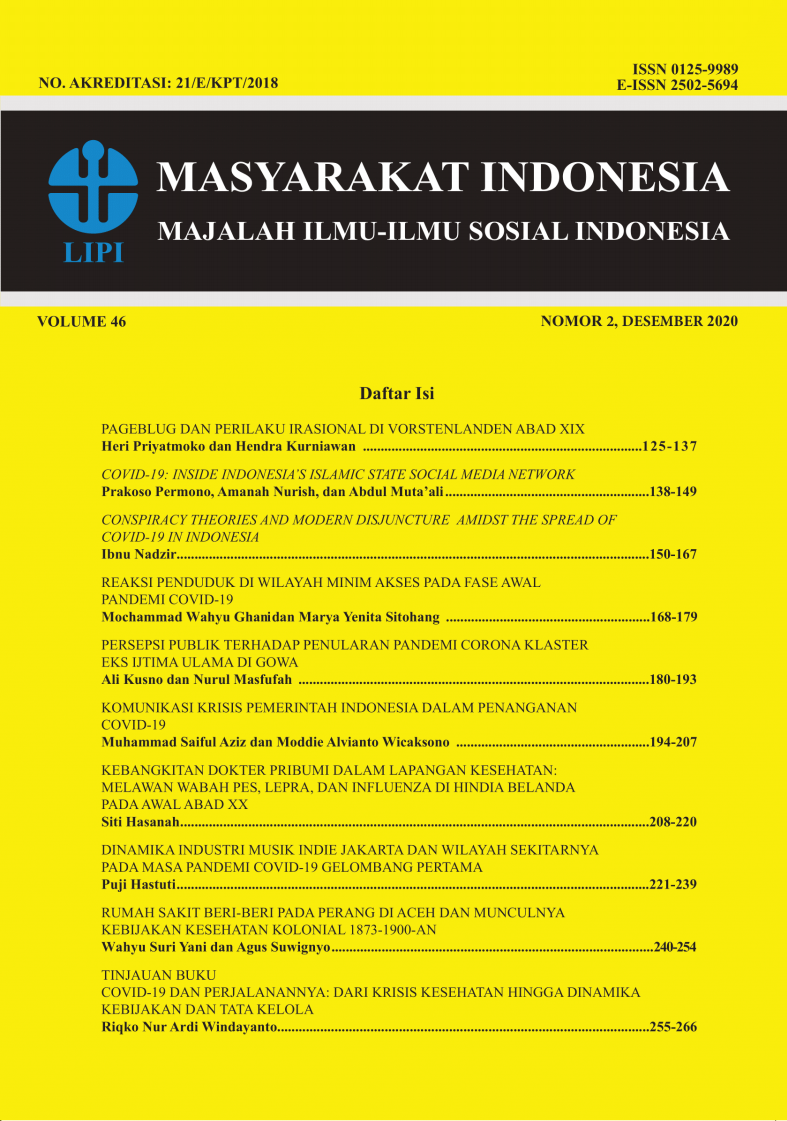How People in the Remote Area React to the COVID-19 Pandemic in the Early Phase
DOI:
https://doi.org/10.14203/jmi.v46i2.907Keywords:
access to information, COVID-19 knowledge, Silat Hilir DistrictAbstract
This article aims to analyze the knowledge and reaction of the remote area population which is the Silat Hilir District, Kapuas Hulu, West Borneo, at the beginning of the COVID-19 pandemic in Indonesia. The knowledge about COVID-19 is still limited so that access to valid information and reliable sources becoming very important. We conducted a participant observation to collect the data. It shows that the population of Silat Hilir District has a poor understanding related to COVID-19. They also tend to react to the COVID-19 hoaxes. Based on the observations which are supported by secondary data, variables like topography, lack of access to electricity and internet, and low level of education make the population of Silat Hilir District unable to process the information they received. Therefore, the development of infrastructure in remote area must also consider the increase of community literacy skills, for example through the education aspect.
References
-
Downloads
Published
How to Cite
Issue
Section
License
Copyright (c) 2020 Author(s)

This work is licensed under a Creative Commons Attribution-ShareAlike 4.0 International License.


